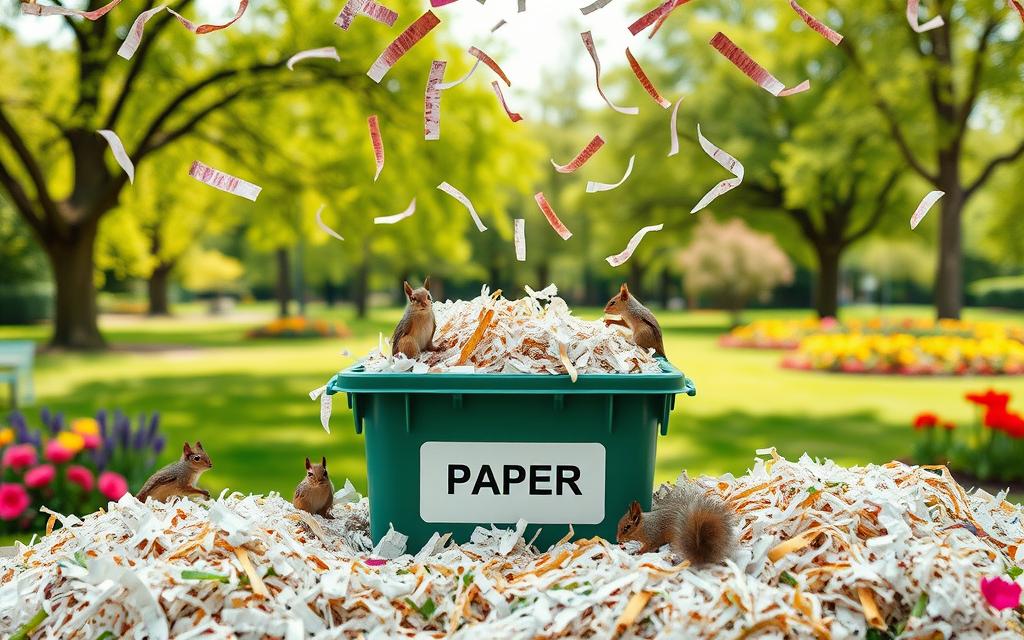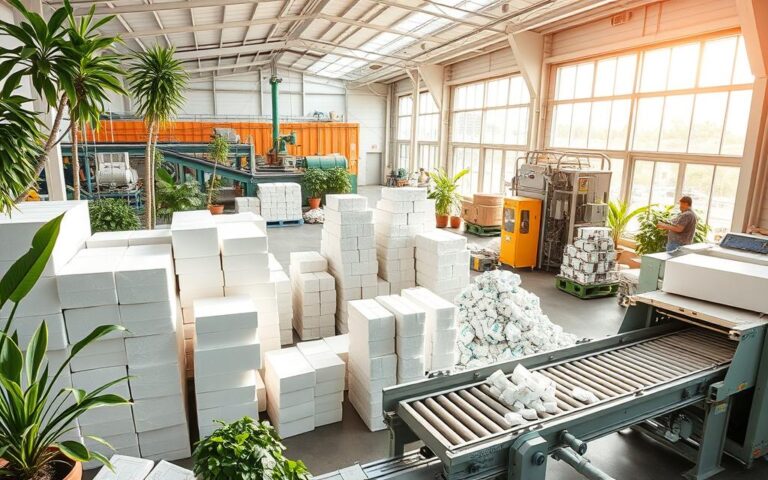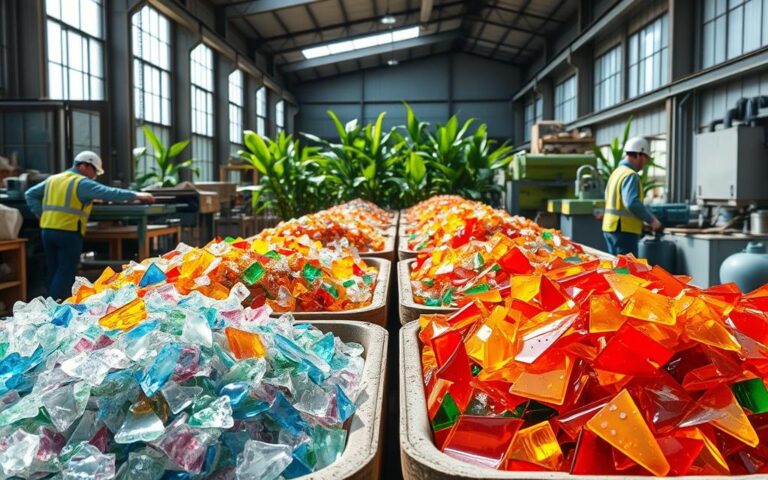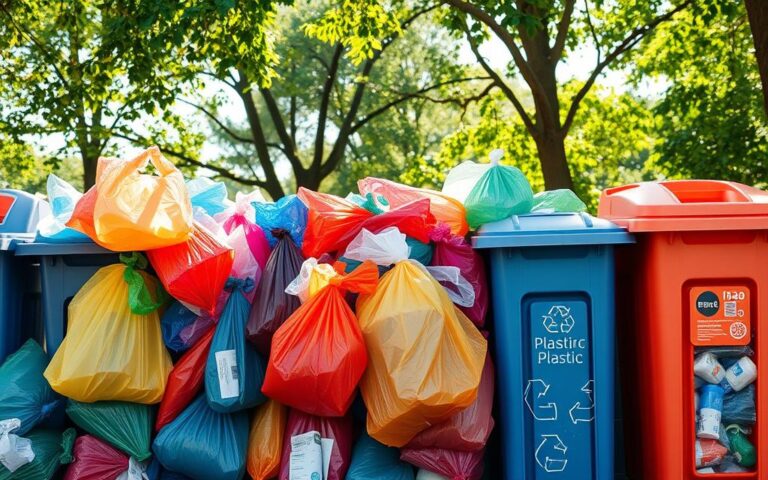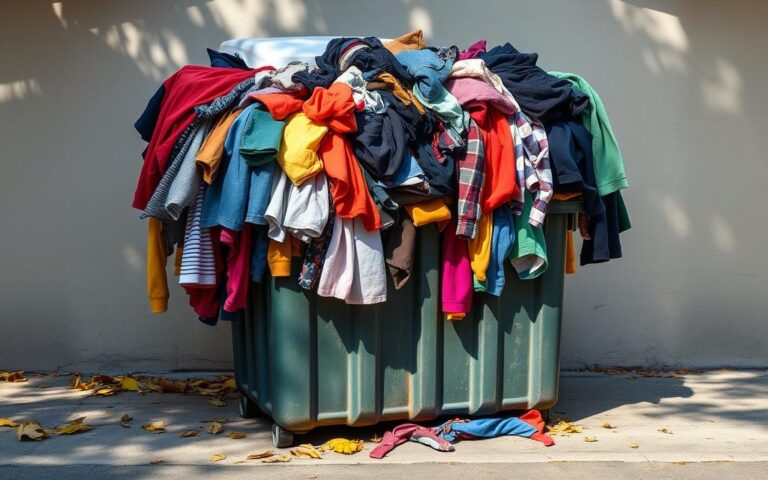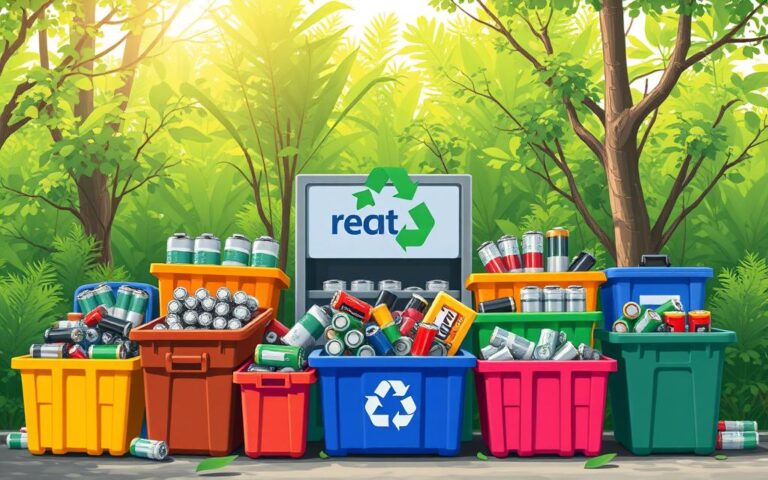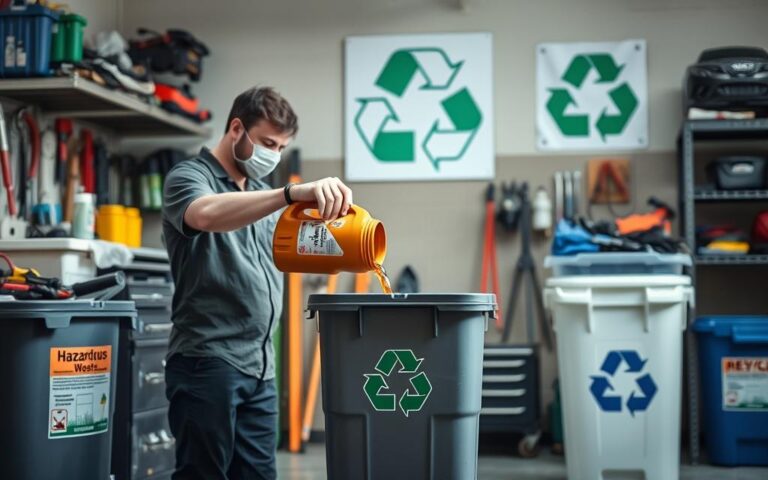Can You Recycle Shredded Paper in the UK? Disposal Guidelines
Recycling is key to living sustainably, but recycling shredded paper in the UK is tricky. Many businesses try to be green. Yet, shredding paper and putting it in the recycle bin doesn’t guarantee it will be recycled properly. Studies show that about half of the materials put in recycling bins don’t get recycled. This leads to more waste in landfills and increases pollution.
Recycling centres often don’t accept shredded paper because it’s hard to manage. The tiny strips fall through the cracks of sorting machines. This makes it tough to handle. So, knowing the right way to recycle shredded paper is crucial for everyone. This applies to those who want to follow UK recycling rules.
Understanding Shredded Paper Recycling
The paper shredding process significantly changes how we can recycle documents. Shredding shortens paper fibres, making them harder to turn into high-quality new products. In the UK, rules on recycling shredded paper vary by local council. This results in different recycling practices across regions. Shredded particles often mess up conventional recycling methods. This presents major recycling challenges shredded paper faces in businesses and recycling centres.
What Happens to Paper After Shredding?
After being shredded, paper goes into making various products. The length of its fibres decides its new use. Shorter fibres end up in products like toilet paper and tissues. Meanwhile, longer fibres are more valued for their quality. Home shredding usually produces these longer strips. But professional shredders make smaller pieces that mix with others, complicating recycling.
The Challenges of Recycling Shredded Paper
Many Recovery Facilities prefer working with bigger paper sheets. Small pieces of shredded paper can jam machines and slow down the process. Some places don’t recycle shredded paper at all because of these issues. Although the UK offers paper recycling collections, shredded paper often ends up in landfills. This makes finding effective and eco-friendly disposal ways important, especially when looking into (paper recycling UK) options.
Can You Recycle Shredded Paper in the UK?
In the UK, recycling shredded paper depends on local council rules. Some councils accept shredded paper in household collection. Yet, others do not, especially if the paper is cross-cut. The way the paper is shredded affects how it can be recycled. Knowing the types of shredded paper helps people dispose of it properly.
Local Council Regulations
UK councils have different rules for shredded paper. Some accept it if it’s in a paper bag or envelope. Others reject small pieces of shredded paper because they are hard to recycle mechanically. Only half of the materials in recycling bins reach recycling facilities. Thus, shredded paper may end up in landfills.
Types of Shredded Paper
Different types of shredded paper have different recycling needs. Here are the main types:
| Type of Shredded Paper | Description | Recycling Status |
|---|---|---|
| Cross-Cut Shredded Paper | Papers cut into small, intricate patterns | Often rejected by most councils |
| Ribbon-Cut Shredded Paper | Papers cut into long, thin strips | Accepted by some councils |
| Thick-Cut Shredded Paper | Papers shredded into wider, coarse strips | More likely to be accepted |
Knowing council rules is key to recycling shredded paper correctly. Depending on the council, shredded paper can become compost or pet bedding. Understanding shredded paper types helps recycle more effectively, preventing it from becoming waste.
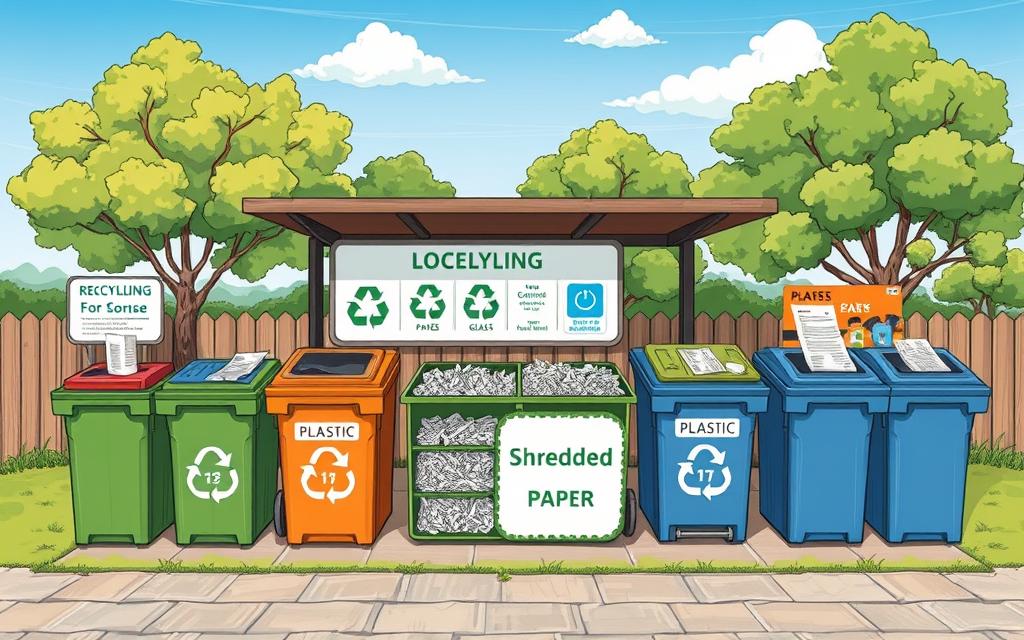
Why Most Recycling Centres Reject Shredded Paper
Recycling shredded paper is a big challenge for recycling centres. This is mainly because the small strips cause mechanical problems. Although shredded paper is often high quality, its size makes recycling hard. This situation shows us the big picture about recycling and the environment.
The Mechanical Issues with Small Paper Strips
Shredded paper strips can cause trouble in sorting machines at recycling facilities. They are small and light, so they often fall through. This means a lot of paper that could be recycled is lost. It can also create fire hazards as paper bits get stuck in machines. Mostly, only larger pieces like A5 paper are picked up. But changing the system is hard due to cost issues. These costs make recycling centres stick with easier materials than shredded paper.
Environmental Impact of Improper Disposal
When shredded paper is not recycled properly, it hurts the environment. In some places, like Hampshire, non-recycled waste is turned into energy. But losing recyclable materials like shredded paper increases waste. Paper mills prefer whole paper because shredding damages the fibres. This means more new pulp is needed, making paper more expensive to produce. When recycling centres exclude shredded paper, more waste goes to landfills. So, it’s important to find other ways to dispose of shredded paper. We should also push for better recycling methods.
Options for Disposing of Shredded Paper
Finding the right ways to dispose of shredded paper is crucial. We want to avoid it ending up in landfills. In the UK, local recycling centres are key. Some centres specifically take in shredded paper for proper processing. It’s important to check with your local council. The rules on shredding can be different depending on where you are. Companies like Shredall SDS Group not only shred but also recycle a lot of the paper.
Local Recycling Centres
Recycling centres in the UK face challenges with shredded paper. Yet, many can still recycle it effectively. It’s good to contact your nearest centre to check their policy. Knowing this helps make recycling work better. If you bag shredded paper properly, centres are more likely to take it. This helps in turning old paper into something useful again.
Alternative Disposal Methods
If recycling isn’t an option, there are other ways to dispose of shredded paper. You can use it for pet bedding or add it to compost. These methods are good for the environment. They help avoid waste buildup. Keeping fewer paper records and more digital ones also reduces waste. By choosing these methods wisely, we help the planet. And we reduce our waste impact.
FAQ
Can I recycle shredded paper in the UK?
In the UK, recycling shredded paper can be tricky. Many local councils won’t accept it because it’s hard to recycle. You should check with your local council on their rules for shredded paper.
What happens to paper after it is shredded?
Shredded paper breaks down into short fibres. This makes it tough to make high-quality paper again. The small pieces can also cause problems in recycling machines.
Why do recycling centres reject shredded paper?
Recycling centres often say no to shredded paper. The small pieces slip through sorting machines and end up as waste. This reduces the amount of materials that can be recycled.
What are the environmental impacts of improperly disposing of shredded paper?
Not disposing of shredded paper correctly can harm the environment. It adds to landfill waste and pollution. It also means we lose a chance to recycle, which is bad for the planet.
Are there any alternatives for disposing of shredded paper?
Yes, there are eco-friendly ways to get rid of shredded paper. You can find local recycling centres that accept it, compost it, or use it for animal bedding. These options help reduce landfill waste.
How do local councils manage shredded paper recycling?
Each local council in the UK has its own rules for recycling shredded paper. Some don’t accept it at all. Others might let you recycle certain types like thicker shreds. It’s key to know your council’s policies.
What types of shredded paper are more acceptable for recycling?
The type of shredding affects whether paper can be recycled. Ribbon or thick-cut shreds might be okay. But cross-cut shreds, which look like confetti, are harder to recycle.

